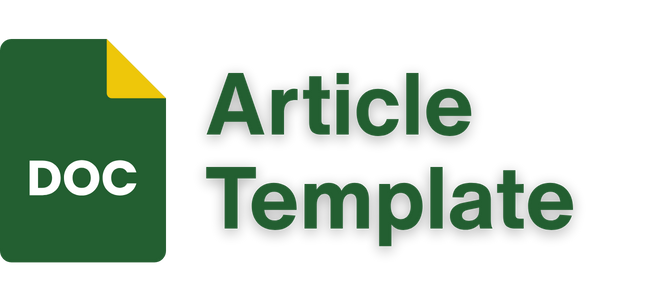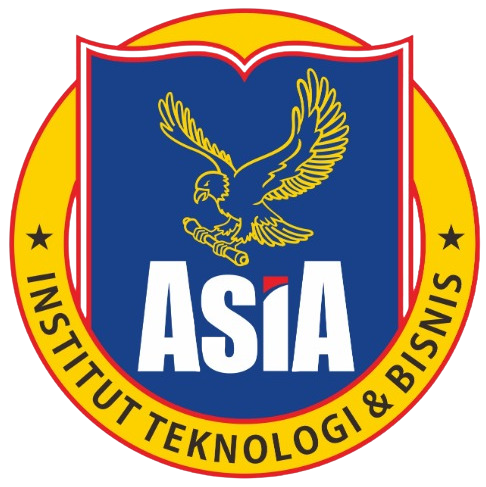PENGARUH KARAKTER DOSEN DAN TEKNIK PEMBELAJARAN TERHADAP MOTIVASI MAHASISWA MENGIKUTI PERKULIAHAN MATEMATIKA EKONOMI DAN BISNIS
Studi pada Mahasiswa STIE ASIA Malang Tahun Ajaran 2015-2016
DOI:
https://doi.org/10.32812/jibeka.v11i1.28Keywords:
lecturer character, learning technique, student motivationArticle Metrics
Abstract
This study aims to determine the effect of the character of lecturers and learning techniques to motivate students attending mathematic economics and business lecturing in STIE ASIA Malang academic year 2015/2016. This study is a kind of field research which the data are taken directly from the respondents through questionnaires with Likert scale 1 - 10. The sampling technique that is used in this research is saturation sample (non-probability sampling) which the total sample is 160 students. However, to meet the classical assumptions, it is necessary to remove 5 data, thus, the data that are further processed is 155. The results of the analysis, by SPSS 23 software, shows that the data was valid, reliable and meets the classical assumptions. While the results of multiple linear regression analysis showed that the character of lecturers has positive impact, but it’s not significant to the motivation of students, while learning techniques has positive and significant impact to the student motivation. The contribution ratio of lecturers character with learning techniques to motivate students is 1: 8. Thus, the main thing that is needed to motivate students to be enthusiastic in taking mathematical economics and business lecturing is improving the learning techniques. Improved learning techniques can be done through the delivery of material and exams in the form of a wide range of interesting games that related to the lecturing materials.
Downloads
References
2.Ariani, Nurul Dwi, 2014, Kedisiplinan Belajar Matematika Ekonomi Ditinjau dari Karakteristik Dosen dan Motivasi Belajar pada Mahasiswa Program Studi Pendidikan Akuntansi Universitas Muhammadiyah Surakarta, Naskah Publikasi, UMS, Surakarta.
3.Echols, John M., dan Hassan Shadily, 1987, Kamus Inggris Indonesia, Gramedia, Jakarta.
4.Fauzi, Alifiko Nur Ahmad dan Sutama, 2016, Pengaruh Strategi Pembelajaran dan Motivasi Siswa Terhadap Hasil Belajar Matematika, Prosiding, Konferensi Nasional Penelitian Matematika dan Pembelajarannya (KNPMP I), UMS, Surakarta.
5.Good, Thomas L. and Jere E. Brophy, 1990, Educational Psycology, A Realistic Approach, Longman, NewYork.
6.Koesoema, Doni A., 2007, Pendidikan Karakter, Strategi Mendidik Anak di Zaman Global, Grasindo, Jakarta.
7.Lickona, Thomas, 1991, Educating for Character, How Our School Can Teach Respect and Responsibility, Bantam Books, New York.
8.Once, 2008, Peningkatan Kemampuan Dosen dalam Proses Pembelajaran, UBM, Jakarta.
9.Purwanto1, N, 2007, Psikologi Pendidikan, Remaja Rosdakarya, Bandung.
10.Purwanto2, Yeni, 2014, Pengaruh Gaya Mengajar Dosen dan Motivasi Belajar terhadap Hasil Belajar Mata Kuliah Teknologi Informasi Pembelajaran pada Mahasiswa Program Studi Pendidikan Akuntansi Universitas Muhammadiyah Surakarta Angkatan 2011, Naskah Publikasi, UMS, Surakarta.
11.Pusat Bahasa Depdiknas, 2008, Kamus Bahasa Indonesia, Pusat Bahasa, Jakarta.
12.Ryan, Kevin and Karen E. Bohlin, 1999, Building Character in Schools, Practical Ways to Bring Moral Instruction to Life, Jossey Bass, San Francisco.
13. Sudrajat, Akhmad, 2008, Pengertian Pendekatan, Strategi, Metode, Teknik dan Model Pembelajaran, Sinar Baru Algensindo, Bandung.
14. Suwarni, Eny, 2012, Hubungan Gaya Mengajar Dosen dalam Proses Pembelajaran dengan Motivasi Belajar Mahasiswa Fakultas Psikologi dan Pendidikan Universitas Al Azhar Indonesia, Jurnal Al-Azhar Indonesia, Seri Humaniora, Vol.1, No.4.
15. UU RI No.14 tahun 2005 Tentang Guru dan Dosen, Jakarta.
Winkel, W. S., 1996, Psikologi Pengajaran, Grasindo, Jakarta.
Downloads
Published
How to Cite
Issue
Section
License
Happy reading. Don't be shy to cite








